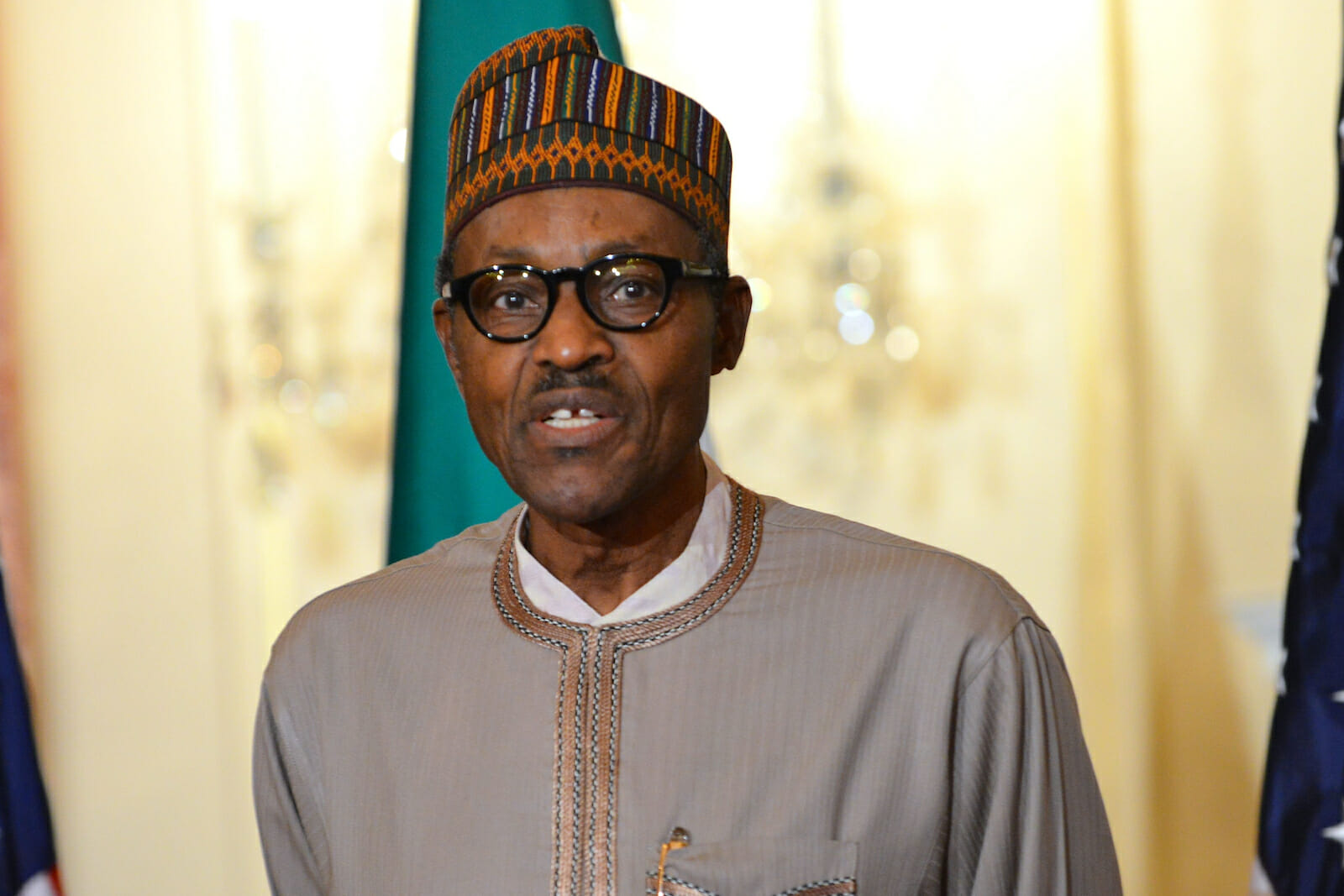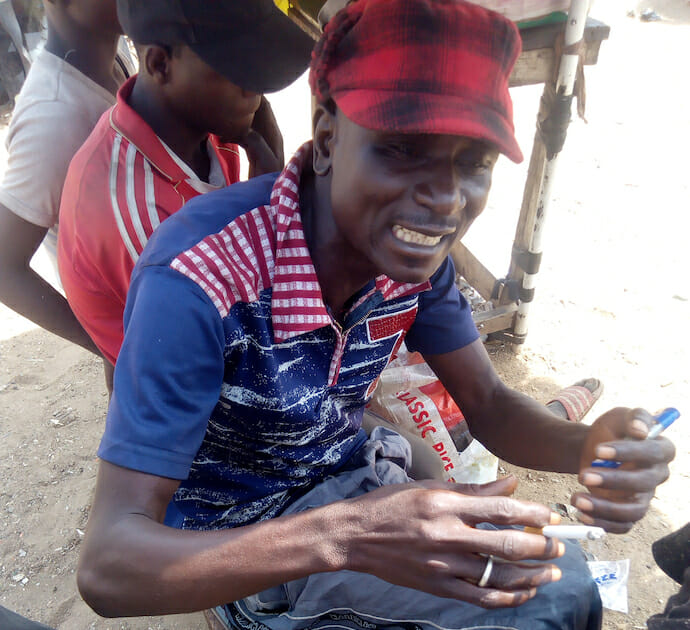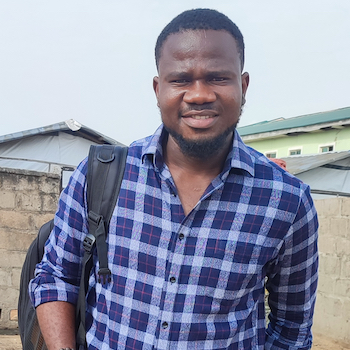
How Nigeria’s Deepening Insecurity Could Mar Buhari’s Re-election Bid
ABUJA, Nigeria – They had come down from surrounding hills as they always did, wielding guns, machetes, and cutlasses and swept through 11 villages, sparing no one, killing women and children. At the end of the killing spree, scores of people were down.
Those were the words that Muhammadu Abubakar told me on a couch in Nigeria’s Federal Capital, a cigarette sandwiched between two of his right fingers.
Abubakar clearly recalls how he lost five members of his household when marauding herdsmen besieged several communities in one of their fierce attacks in Nigeria’s North Central State of Plateau in 2018, killing about 86 people.
“It was on the early hours of the day,” Abubakar continues. “We were just waking up but still tired having worked for hours on our farm the previous day when we heard deafening gunshots and people scampering for safety.”
When Abubakar and members of his family came out to see what was happening, they saw flames building castles in the air. Surrounding communities had been thrown into confusion. While some of his family members escaped the attack, 5 lost their lives.
After the attacks on 11 communities, Abubakar, whose family was only struggling to survive at that time, traveled down to Abuja where he has been searching for the means of livelihood. “I don’t think I will ever forget that attack,” he said, anger and pain running over his face.
Hopes dashed
Abubakar’s story is no different from that of thousands of Nigerians who have lost loved ones due to years of insecurity, but he is also part of the Nigerian population who elected President Muhammadu Buhari in 2015, with the hope that he will turn the tables around and address the security challenges facing the country.
In 2015, Buhari won the presidential election, beating former President Jonathan by 2.5 million votes to become the first opposition candidate to win a presidential election in Nigeria.
Nigeria has been fighting a war against Boko Haram since 2009. The terrorist sect intends to establish a hardline Islamic caliphate in Northeast Nigeria. Since its inception, the deadly sect has killed more than 50,000 people and has displaced millions as well as destroyed much property.
But in the build-up to the election, Buhari promised security for Nigeria. He told Al Jazeera in a February 2015 interview that if he were to come to power, he would work to “pressure Boko Haram out of Nigeria,” adding in his first speech as president-elect that “In tackling the insurgency, we have a tough and urgent job to do.”
His victory at the polls was apparently hinged on his promise to tackle insecurity which had become a major challenge for the country and in particular, insurgent activities which have almost crippled many sectors.

Former President Goodluck Jonathan was both accused and loathed by many for not taking Boko Haram seriously and it was thought that Buhari would be better positioned to defeat the militants and bring back peace, given his years in the military.
But four years after he assumed office, Buhari has struggled to live up to the high expectations that greeted his victory in 2015. The country has been plagued by gangs of armed bandits preying on villagers, clashes between herdsmen and farmers and the Islamist insurgency of Boko Haram even becoming more vicious than ever.
Even though he has repeatedly said that the Boko Haram jihadist group has been defeated, analysis of its attacks shows that the group killed more than 900 people in just 2017, marginally more than it did in 2016, consistently mounted attacks during the year, defying Mr. Buhari’s assertion that the militants had been routed.
Thousands have lost their lives since 2015 and the country still has well over 1.8 million internally displaced persons in camps spread all over.
About 1,700 violent deaths have been attributed to Fulani herdsmen in attacks carried out between January and September 2018, according to a report by the 2018 Global Terrorism Index. The struggle for economic resources like land and water between farmers and cattle herders has led to bloodbaths, with thousands losing their lives to the age-long clash.
In 2017, clashes between nomadic herdsmen and local farmers resulted in at least 549 deaths and thousands displaced across Benue, Taraba, Zamfara, Kaduna, Plateau, Nasarawa, Niger and Plateau states, with Benue, Plateau, Kaduna, and Taraba being hotbeds of such attacks.
Reacting to the orgy of attacks by suspected herdsmen, the country’s director of Amnesty International said that countless numbers of people have lost their lives, yet the government is still not doing enough to protect communities from these violent clashes. Worse, the killers are getting away with murder.
In 2018 alone, in the state of Zamfara, hundreds died in mass murders and more than 21,000 people have been forced from their homes. There has also been an increased rate of killings and kidnappings in the country.
In October 2018, Former Chief of Defence Staff, Air Chief Marshal Alex Sabundu, was shot dead by unknown gunmen along Keffi-Bade road, Nasarawa state, while returning from his farm.
The assassination of the four-star general occurred three months after the body of General Idris Alikakli, the immediate past Chief of Administration, Army Headquarters, Abuja, was discovered somewhere in Lafande community, Jos South LGA of Plateau state. He was reportedly killed and buried in a shallow grave by irate youths. The death of these two officers left the entire nation in shock as it lends a loud voice to the height of insecurity in the country.
In a statement, Chidi Odinkalu, a human rights activist based in Abuja, said that there has been a significant collapse of security in Nigeria. He added that killings by bandits and other miscreants only happen because of “government failings.” “Banditry occurs in ungoverned territory.” “It is in these rural areas with little or no cover. The territory is completely exposed, so at the heart of the issue is a crisis of governance,” he added.
The future of a generation threatened
Years of combined attacks by Boko Haram in North-East Nigeria and heightened herdsmen attacks in the North Central states have led to an entire generation of children being deprived of an education.
A Demographic Health Survey (DHS) conducted by the United Nations Children Fund (UNICEF) and the Nigerian government shows that the population of out of school children in Nigeria has alarmingly risen from 10.5 million to 13.2 million which means that the country ranks highest among countries with out of school children in the world. And this means that the country is losing out on a literate and skilled workforce which it needs to grow economically,
Hussaini Abdu, the director at Plan International in Nigeria, an independent development and humanitarian organization which has been working in Borno and Adamawa states to support children who left school due to insurgency to recommence their studies by providing school materials and training teachers believes that without education, these children are at risk of being seen as an ideal recruitment tool for extremist organizations or criminal gangs.
The military itself has had a not-so-easy campaign against the insurgents as they have been increasingly stretched, recording a huge number of casualties recently. On Nov 18, there was a report of how Boko Haram insurgents attacked a military base in Melete, Borno State, killing over 100 soldiers. Prior to the attack and even after the attack, the insurgents attacked several military bases in the North.
With the deepening ferocity of the insurgents and the ever-increasing casualties of the war, Nigerians will not forget the promises Buhari made to them during the election. As they prepare to go to the polls in February, they expect a change, not the same as what they are experiencing now, but something way better.

